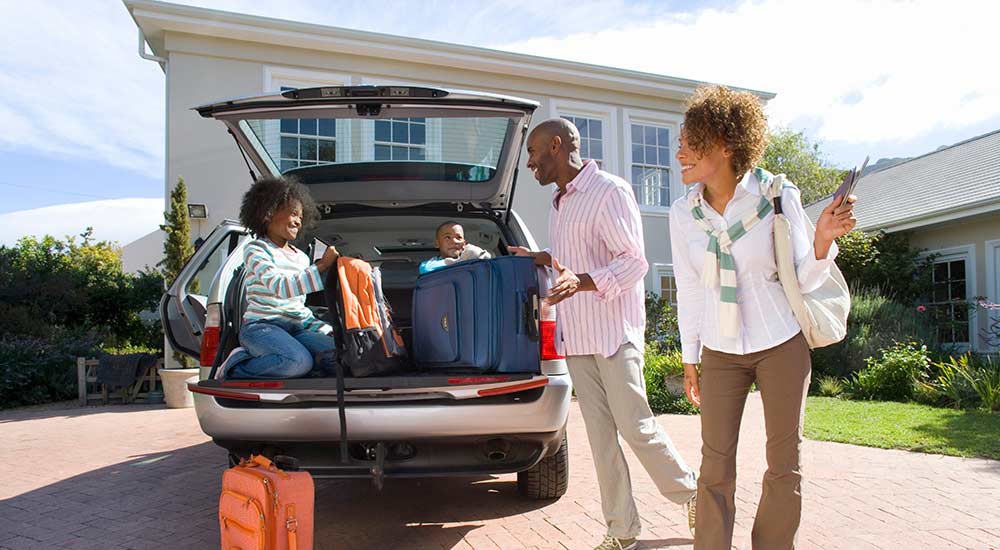Why Did My Insurance Go Up?

Have you ever noticed insurance rates fluctuate over time, even if you haven’t made changes to your policy? This is normal and occurs for many reasons, like labor costs, economic changes, and shifting weather patterns.
With everyone feeling the pinch these days, many are looking for ways to reduce their home and auto insurance premiums. Taking advantage of insurance discounts is a great place to start, but let’s take a closer look at your options.
Why Are Home Insurance Rates Going Up?
Homeowners insurance premiums can go up for a few reasons:
Policy Changes
If you report an increase in your home's value, or adjust policy limits, you may see higher annual insurance premiums. This makes your home more expensive to insure, so the insurance company must also change the amount of coverage you are responsible for.
Material Costs
Homeowners insurance premiums are calculated based on your property’s value and the cost to repair or restore it. Supply chain problems, inflation and other economic factors can increase the cost of building supplies. When this happens, the cost to rebuild your home after a loss also increases, resulting in higher annual premiums.
Labor Costs
Much like materials, the price of labor is a big component in your insurance costs. As skilled laborers like electricians, plumbers and carpenters raise their rates, the cost to repair your home will rise, too.
Why Is Car Insurance So Expensive?
Auto insurance premiums rise for several reasons, including:
Higher Repair and Replacement Costs
Just like home insurance, auto insurance rates are affected by the price of parts and labor. Car parts are becoming harder to find and mechanics are charging more for their labor. In addition, 2023 saw the highest jump in claim costs since 1976, with auto repair costs up 20% in the last year.*
More Severe Accidents
Speeding, distracted driving and other reckless driving habits result in expensive accidents. When accident rates increase and payouts grow, so do insurance premiums. Regardless of your personal driving record, living in an area with high accident rates will drive your premiums up.
You Recently Moved
Moving can have a big influence on your insurance rates, for example, moving to an area with higher accident rates or more traffic. Even the price of your neighbors’ cars can increase your insurance rates, as you’ll need to ensure you have enough coverage in place to protect you in the event of an accident.
Protection From the Uninsured
Nothing complicates a traffic accident like hitting an uninsured, or underinsured, driver. When this happens, it puts you and your insurance provider in a position to take financial responsibility for damages – even if the accident wasn’t your fault. Adding uninsured motorist coverage to your policy will increase your annual premiums but can be a great way to minimize the financial impact of an accident.
How Bad Weather Affects Insurance
Insurance policies protect against severe weather incidents like tornadoes, hail and wildfires. According to the NOAA, the U.S. has experienced 10 or more billion-dollar disasters each year for the last eight years.
The frequency and severity of these weather disasters can have a dramatic impact on both home and auto insurance. As the climate continues to change, so will insurance rates for people across the country.
How Can I Save on Insurance Premiums?
Fortunately, there’s a lot you can do to get proactive and save on your insurance costs. Whether home or auto, here are a few things to try:
Review Your Policy
Make sure your policy covers all the essentials, but you aren’t paying for coverage you don’t need. For example: Removing a shed, pool, or other outbuilding from your property presents an opportunity to review your insurance needs. When you make that kind of change, be sure to update your insurance policy to ensure you’re paying for the appropriate coverage.
Increase Your Deductible
A deductible is the amount you are responsible to pay after a loss. For example, say you cause an accident that results in $2,000 in damage to your car. If you have a $500 deductible, you will be responsible for paying that amount while your insurance company covers the other $1,500. Increasing your deductible also increases the amount you are responsible for after an accident. However, it can be a great way to save on your monthly insurance costs if you are a safe driver and aren’t likely to end up in an at-fault accident.
Prevent a Loss
It’s well known that claims will increase your insurance rates. Prevent an incident by:
- Installing smoke detectors, security systems and more in your home
- Installing smart home systems in your home such as motion sensors, video doorbells, and water leak sensors that will send you an alert on your mobile device
- Adding safety features like anti-lock brakes, a backup camera, or an anti-theft device to your car
- Installing safe driving devices or taking a defensive driving course, and more
These options are a great way to reduce your risk and qualify for new discounts.
Ask About Discounts
Speaking of discounts, most insurance providers offer savings for safe driving, loyalty, purchasing multi-vehicle policies and more. An independent insurance agent can help you find and sign up for all the discounts available to you.
Pay in Full
Another great way to save on your auto insurance premiums is to explore your payment options. Many insurance providers will offer paid in full discounts for drivers who choose to make a single payment rather than breaking their premiums down into monthly installments. In some cases, you can even find discounts for setting up auto pay rather than manually making payments each month.
Bundle Your Policies
Insurance companies love to reward loyalty, so the easiest way to save on insurance is often to bundle your policies. This means keeping your homeowners insurance, commercial insurance coverage, auto policy and any other coverage you may need with the same provider. Doing so saves you trouble if you need to file a claim and can be a great way to save money.
Forbes estimates that bundling insurance policies saves consumers an average of 14% each year.
Talk to an independent agent today to see how you can save on your home and auto insurance.
*Source: June 2023 Consumer Price Index, https://www.dol.gov/newsroom/economicdata/cpi_07122023.pdf

